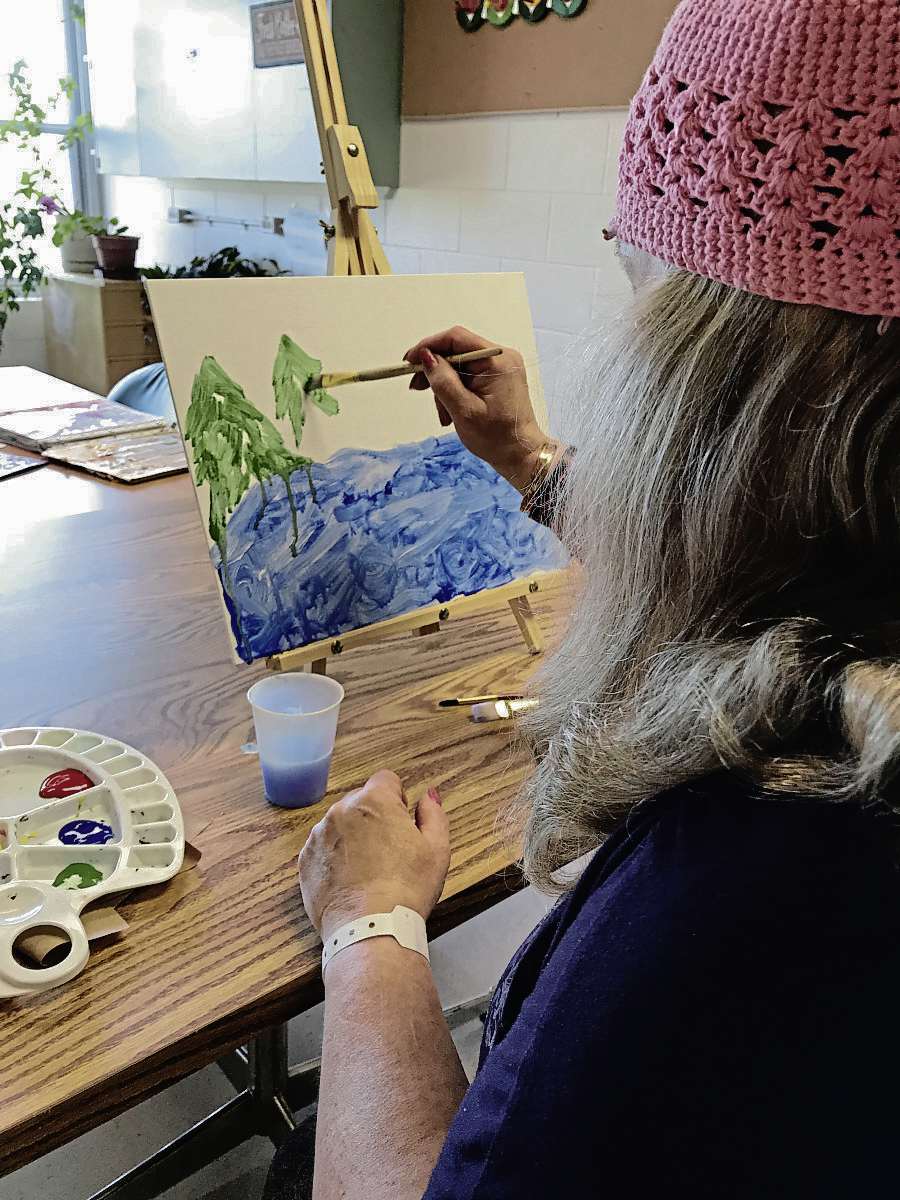Recreation therapy helps patients cope, recover
Advertisement
Hey there, time traveller!
This article was published 11/06/2018 (2644 days ago), so information in it may no longer be current.
Caring for patients can take on many forms. At St. Boniface Hospital, a dedicated team of recreation therapists is committed to maintaining and improving the physical, mental, and emotional well-being of patients.
“Recreation therapy is about engaging patients in activities they find interesting,” says Jennifer Klos, recreation therapist at St. Boniface Hospital. “Our goal is to provide patients with the best quality of life during their stays.”
Recreation therapy is tailored to every patient’s interests and physical abilities. Participating in recreation activities supports patient recovery, maximizing their independence, helping them get and stay healthy, and improving their quality of life.

“Recreation therapy can be especially beneficial to patients who have dementia or delirium,” Klos says. “If patients are agitated or bored, we offer activities that keep them engaged and help curb some behaviours.”
Therapists use creative approaches to engage patients in activities throughout the entire hospital. Through the Music and Memory Program, patients and families help therapists create a customized playlist for patients to listen to with a recreation therapist of volunteer.
“You see the benefits right away,” Klos says. “Patients who are very agitated will settle down as soon as they hear music they enjoy.”
Therapeutic recreation kits, filled with puzzles and craft supplies, are available for hospital patients who could use a distraction, as are comfort mitts. Comfort mitts, knit by hospital volunteers, have interesting tactile items fastened to them and are used to distract patients who may be pulling at their IVs or dressings.
“Some patients may not understand what they are doing, or that they are at risk of harm when they touch medical equipment,” Klos says. “The mitts keep them occupied and ensure they continue to receive the best care.”
Recreation therapy at the geriatric day hospital is geared towards cognitive stimulation, strengthening exercises, and group activities that promote socialization. Patients in the mental health program can participate in a variety of activities, from arts and crafts, cooking, karaoke, and even yoga.
Patients or families can request a consult with a recreation therapist through their nurse. Following an assessment, the therapists will suggest activities and follow up periodically during the patient’s stay.
“Through purposeful interventions, we can make a difference in the patient’s cognitive, emotional, physical, and social well-being,” Klos says. “If patients are introduced to new activities and skills they can do on their own, they are less likely to require readmission to the hospital, too.”
Karine Verot is the communications co-ordinator in the corporate affairs and communications department at St. Boniface Hospital. Contact her at kverot2@sbgh.mb.ca




